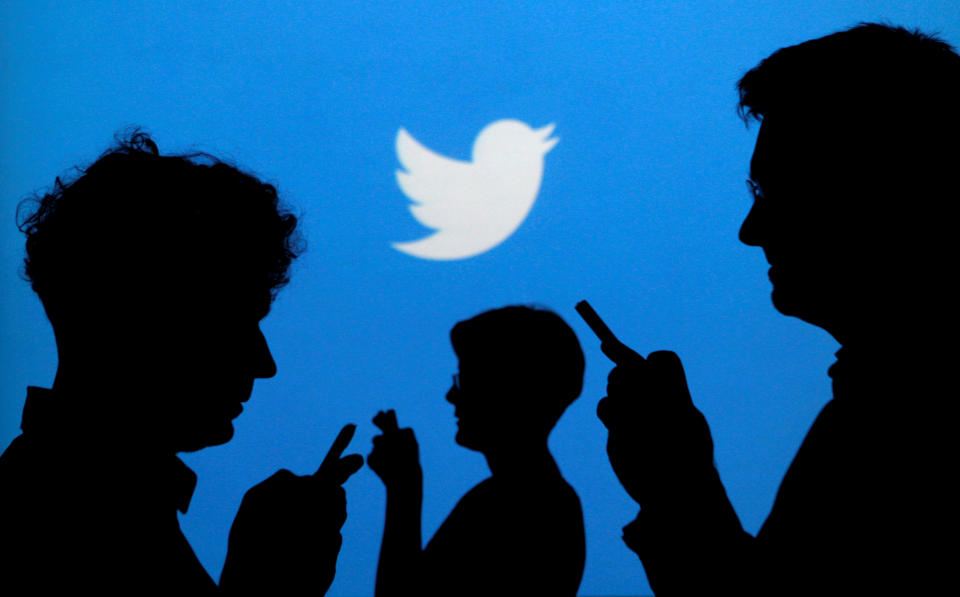There's a simple fix for Nazis bothering you on Twitter

If you look at Twitter (TWTR) bios, you may be surprised to see more people listing their location as “Germany,” even though they may have never set foot in the Bundesrepublik Deutschland.
Over the past few years, Twitter has received a flood of criticism for not dealing with harassment and hate speech well, tacitly condoning accounts by leaving them activated.
In Germany, however, citizens are not granted quite as broad free speech rights as U.S. citizens are , a practice that is traced back to the denazification process after World War II. While freedom of speech and press is guaranteed, inciting speech (Volksverhetzung), libel, and Holocaust denial is not permitted.
Most critically, Nazi iconography for purposes outside of “art or science, research or teaching” is not allowed under Germany’s criminal code (Strafgesetzbuch).
In 2017, these rules were incorporated into a new rule called NetzDG, shorthand for Germany’s Network Enforcement Act, which requires social media sites to crack down on hate speech — and quickly. The social media networks have just 24 hours to comply. Noncompliance could result in fines of up to 5 million euros.
Harassment blocking hack
In a widely-shared tweet, U.S. journalist Virginia Heffernan advised people to change their location to Germany. “I changed my Twitter address to Germany at the suggestion of a shrewd friend, and they [hate tweets] vanished. Germany has stricter hate-speech laws,” she tweeted.
PSA. For anyone beset by Nazi and brownshirt bots: I changed my Twitter address to Germany at the suggestion of a shrewd friend, and they vanished. Germany has stricter hate-speech laws.
— Virginia Heffernan (@page88) December 4, 2017
Despite Heffernan’s clear success — the hack worked — it is unclear whether it’s an effective long-term fix, and Twitter declined to comment on the tactic or its effectiveness, and did not say whether it was because of the new law.
According to a source with knowledge of the matter, Twitter is in a three-month transition period getting things in order that began when the NetzDG went into effect Oct. 1.
However, Twitter pointed to its policies that state that a user’s country of origin is determined not by self-selecting a profile country.
“We use the IP address from which you are viewing Twitter to determine your country,” a Twitter spokesperson told Yahoo Finance, noting the difference between “profile location” and “country setting.”
There may be a way around this, though. It is possible to change your country setting if Twitter has misidentified your country, something that may yield better results than a simple profile change.
In any event, location shouldn’t matter. In the NetzDG rule itself social media platforms like Twitter are obligated to comply even if the location isn’t Germany, a move designed to protect Germans abroad. “The regulatory offence may be sanctioned even if it is not committed in the Federal Republic of Germany,” the rule states.
Since Twitter and other social media platforms are currently in the process of adapting to these rules — the law states the company must provide bi-annual German-language reports, among others — it isn’t completely clear how things will end up. But for now, it appears the stopgap is working.
Ethan Wolff-Mann is a writer at Yahoo Finance. Follow him on Twitter @ewolffmann. Confidential tip line: FinanceTips[at]oath[.com].
Read More:
American Airlines just resolved its 15,000 flight fiasco
The phone industry’s clever plan to stop robocalls
Jack Dorsey on bitcoin and cryptocurrency
How cutting the 401(k) limit would affect people’s saving
Former ambassador: Mexico has ‘moved on’ from NAFTA
Big bitcoin-friendly companies like Microsoft and Expedia hedge their bet
The real reason Mexico will never pay for the Trump’s wall: It’d be ‘treason’
How Waffle House’s hurricane response team prepares for disaster
Trump weighs slashing one of the most popular tax deductions
